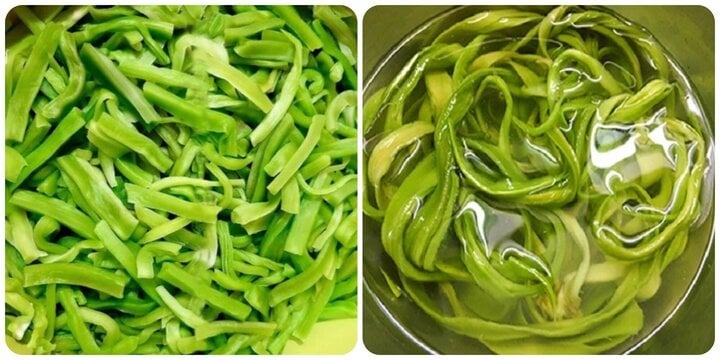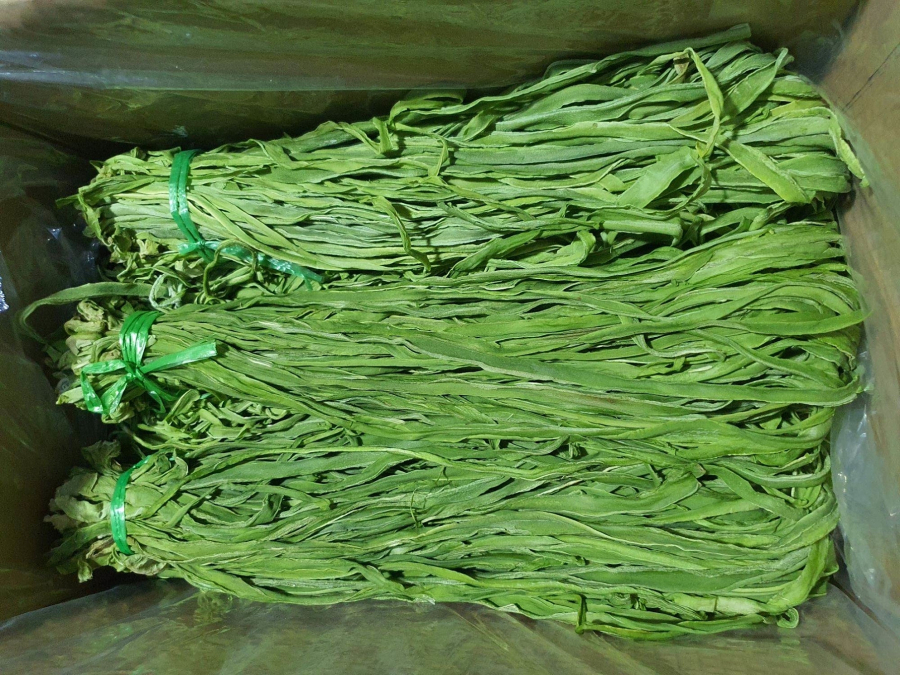This vegetable was once considered a special dish only for the royal court, but now it has become a familiar food in many housewives’ kitchens. Known as the “king’s vegetable,” this vegetable has conquered the taste buds and become an important part of daily cuisine.
What is the king’s vegetable?
Dr. Huynh Tan Vu, Head of the Day Treatment Unit at the University Hospital of Traditional Medicine in Ho Chi Minh City, shares that the king’s vegetable, a type of vegetable that used to be a specialty reserved for the royal court in the past, has now become a familiar part of many housewives’ kitchens.

The king’s vegetable, scientifically known as Mountain Jelly Vegetable, is also known by other names such as Sky Vegetable, Sea Mustard, Jelly Vegetable, or Dried Mustard depending on the region. With significant nutritional value, this vegetable provides over 20 types of minerals and essential amino acids for health, such as Protein, pectin, calcium, iron, zinc, carotene, potassium, sodium, phosphorus, and many other trace elements.
On social media, dried king’s vegetable, grade 1, is sold at prices ranging from 500,000 to 700,000 VND per kg. Although it is more expensive than meat, this vegetable still attracts the attention of many consumers due to its nutritional benefits.
Amazing health benefits of the king’s vegetable
The king’s vegetable not only attracts consumers with its delicious taste but also contributes significantly to maintaining health.
Here are the amazing benefits of the vegetable known as the “ginseng of vegetables”:
Cooling and detoxifying
The king’s vegetable has been proven to have a cooling effect on the body and eliminate toxins from the body, surpassing some fruits such as oranges, grapefruits, mangoes, and pineapples.

Skin beautifying
The coolness and detoxifying ability of the king’s vegetable not only help prevent skin problems like acne and rashes but also provide vitamin E, which makes the skin bright, smooth, reduces wrinkles, and regenerates skin cells.
Anti-aging
The king’s vegetable is rich in amino acids, pectin, protein, and other antioxidants, which help enhance vitality, reduce fatigue, and support anti-aging processes both internally and externally.
Heart health support, memory enhancement: With its high nutritional content, the king’s vegetable can help lower blood pressure, dilate blood vessels, improve blood circulation, thereby enhancing memory.
Digestive support
The king’s vegetable is not only known as a blood tonic but also stimulates the digestive system, helping to address constipation and provide fiber to prevent cholesterol absorption.
Cancer prevention
The phytonutrients in the king’s vegetable have been proven to have the ability to inhibit the formation and development of free radicals, thereby supporting the prevention of breast cancer, stomach cancer, and colorectal cancer.
A good vegetable for pregnant women and fetal development
The gentle nature of the king’s vegetable supports pregnant women and nursing mothers in maintaining hormonal balance. Being rich in vitamins A, B, C, E, iron, calcium, zinc, phosphorus, pectin, and other amino acids, they are good for both mothers and the development of babies. In particular, the vitamin E content helps prevent miscarriage and premature birth.
In traditional medicine, the king’s vegetable is known to have the function of nourishing the spleen, nourishing the brain, calming the nerves, detoxifying, weight loss, preventing cancer, lowering blood pressure, and softening blood vessels. Eating this vegetable regularly can support longevity and is very good for health.
With the above-mentioned effects, the king’s vegetable has become an expensive vegetable and is loved by many housewives.
Miracle Drug Discovered in (Cheap) 1/2 Quail Eggs
Many consumers are showing great interest in a special type of egg: small in size, yet surprisingly affordable, this egg has been dubbed a “miracle drug” due to its numerous health benefits. The egg in question is half the size of a quail egg, and popularly known as the ‘bait egg’!



































